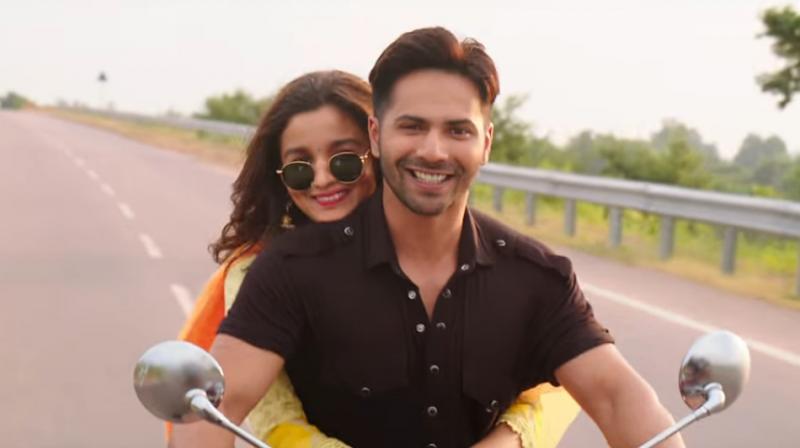Badrinath Ki Dulhania music review: Uninventive apology of an attempt
The Varun Dhawan-Alia Bhatt starrer has music composed by Amaal Mallik, Akhil Sachdeva and Tanishk Bagchi.

Mumbai: With every new soundtrack, one hopes. That elusive Bollywood soundtrack which refuses to compromise and indulge in contemporary tropes shall arrive, one hopes. But then, one can only hope.
But excluding the sporadic anomalies, Bollywood has historically had one mediocre trend replace another, since a few odd decades.
Shashank Khaitan’s Varun Dhawan and Alia Bhatt starrer ‘Badrinath Ki Dulhania’ is no different, with a screechingly mundane soundtrack, explicitly trying to buy in on current trends.
There’s the misplaced Baadshah rap, there’s the reinterpretation of the unsuspecting retro dance number, there’s the quintessential Arijit Singh clone ballad; name the recent atrocity, you have it.
The expected chartbuster ‘Tamma Tamma Again,’ is relatively better than the other four offerings, delivering what’s expected of it- a decently peppy dance number. The track, reproduced by Tanishk Bagchi, however, has a grating intruder in Baadshah, who’s hit the saturation point much sooner than was expected of him, in the post-Honey Singh era.
‘Aashiq Surrender Hua,’ Amaal Mallik’s foray into Sajid Wajid territory, is an underwhelming attempt at creating a dance number that might appease to the mofussil of the north.
The title track, an attempt on similar lines by Tanishk Bagchi, sounds straight out of Pritam’s ‘Baby Ko Bass Pasand Hai’.
One of these days, Indian musicians need to stop their alarming obsession with kindergarten rhymes camouflaging as rap in mainstream songs, or just let the kindergarten dots do the honours. Maybe, just maybe, they might come up with better content.
‘Roke Na Ruke Naina,’ Amaal’s latest attempt at a love ballad, is eerily reminiscent of brother Armaan’s strictly average (if not worse) ‘Sab Tera’ from ‘Baaghi’.
However, the absolute worst song in this apology of an attempt for a soundtrack, is Akhil Sachdeva’s ‘Humsafar’. The intended soft sufi romantic ballad, ends up being a heavy on autotune number, courtesy the singer-composer’s inadequacies as a vocalist.
Intentionally or otherwise, the affair seems like a meek imitation of a vintage Atif Aslam (Akhil even sounds like him), making Atif seem like a champion of clean vocals.
It is high-time Bollywood let go of its idiosyncratic obsession with trends, because the average listener is fast catching up, and they can distinguish between the delectably creative providers of music and the passenger of the trend-wagon.
